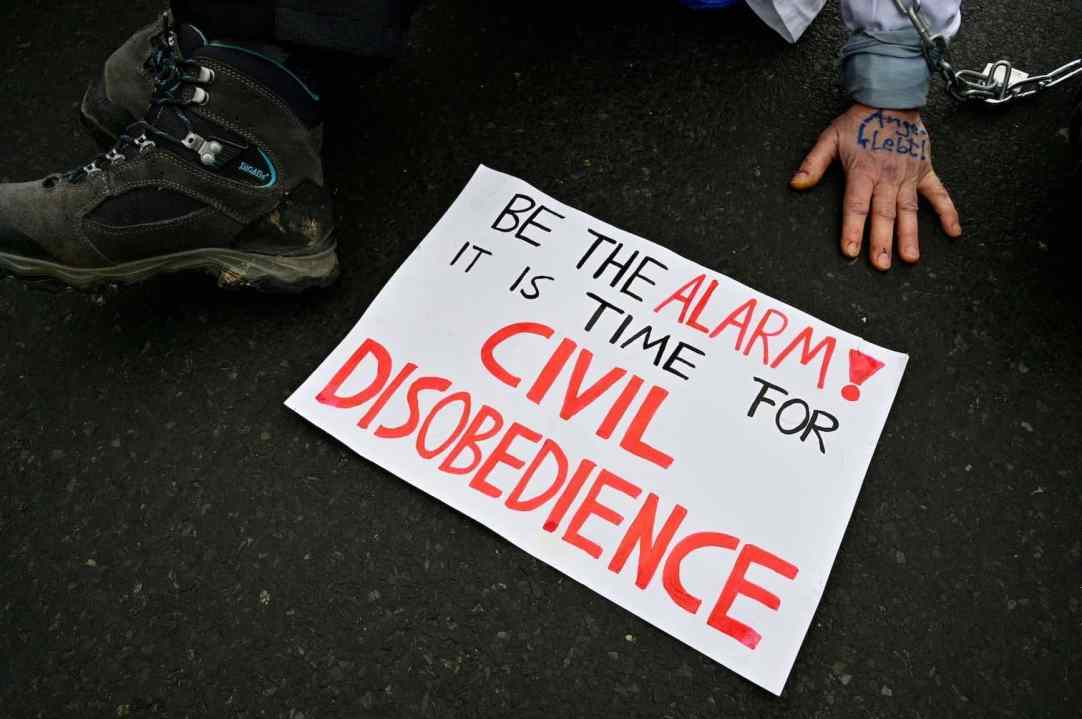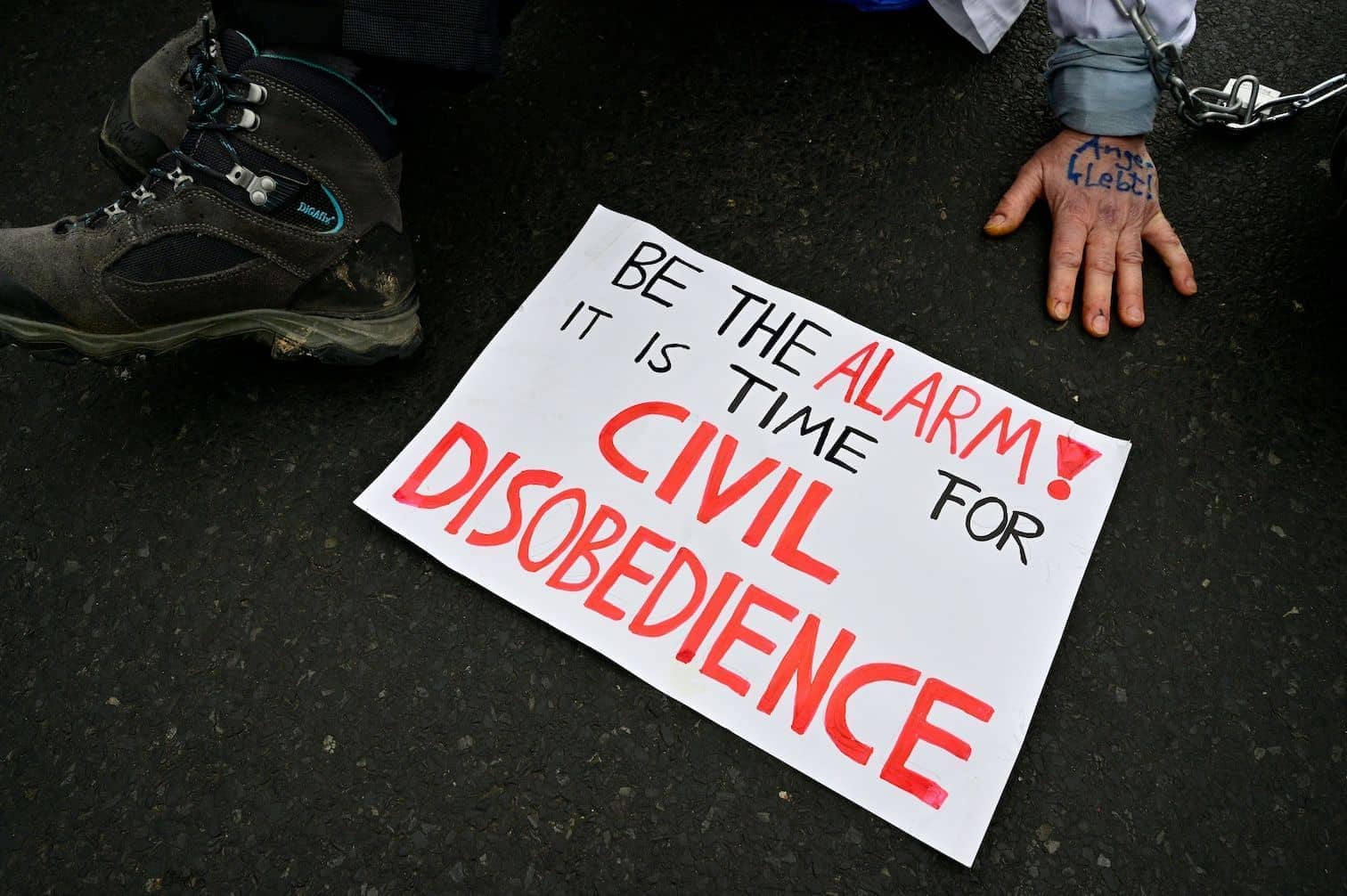The right to protest against the policies of the government of the day, the system in general or even just to ‘stick it to the man’, as 1960s radicals used to put it, is fundamental to a free society.
But when the freedom to protest is deliberately used by activists to take away the freedom of others to go about their normal lives then we reach an ethical crunch point. One man’s freedom has then become, as it were, another’s suppression and the law must adjudicate between the competing claims.
So it is with the campaign tactics of various climate alarmist groups that have sprung up such as Extinction Rebellion, Insulate Britain and most recently Just Stop Oil. By trespassing on parts of the oil supply infrastructure in the past week, the latter group has succeeded in interrupting deliveries to petrol stations, leaving many people unable to fill their cars and thereby wrecking countless Easter holiday plans and the working lives of millions of people.
This goes far beyond the right to protest; it is in fact a bid at political imposition via ‘direct action’
This is no accidental side-effect of the protest, but the central point of it. For example, Mitchel, Rosa and Ben, an infuriatingly plumy-voiced trio who have managed to shut the pipes at the Grays terminal in south Essex, explained their rationale in a video. Mitch celebrates causing ’25 hours of increased disruption to the oil infrastructure of the country’, while Ben adds:
If you are someone who is feeling this disruption and wants to know how it can stop, it stops when Boris Johnson or his government makes a meaningful statement that they are going to stop all new consents and licences for new fossil fuels.
This goes far beyond the right to protest; it is in fact a bid at political imposition via ‘direct action’, causing unbearable costs to a society that has not democratically chosen this path. And they’re not just stopping people from buying fuel, but also stopping them driving anywhere even if they do manage to fill up.
On Sunday activists caused traffic chaos, again quite deliberately, by blocking key junctions in our big cities, just as they have done over recent months by blocking motorways such as the M25 in morning rush hour. This again is not an activity that can legitimately be covered by the idea of personal freedom to protest because it involves stealing the freedom of so many others to go about their lives.
It should not take more than an instant for the legal system to decide that the freedom of people to go about their normal business must obviously trump the freedom of political activists to carry out militant protest. And yet this is not where we are as a society. Attempts to remove, arrest and prosecute these saboteurs have so far been slow and half-hearted.
As the Metropolitan Police put it in a tweet on Sunday: ‘Officers have been on scene and speaking with those protesting on Lambeth Bridge, encouraging them to leave. The demonstration is causing serious disruption by blocking the bridge.’ The Met may call it ‘encouraging’, but many of us will see it as begging – begging law-breakers to pack it in and disperse but lacking the courage to do anything decisive to resolve the situation.
This is a disastrous turn of events and will surely lead to many more instances where those whose freedom is being infringed feel they have no option but to take matters into their own hands, with an ensuing risk of injury to one party or the other. Take the case of school-run mum Sherrilyn Speid, who used her Range Rover to nudge an Insulate Britain protestor along the highway as she tried to get her son to school on time and herself to work.
Ms Speid was given an interim driving ban after admitting a charge of dangerous driving, but it is hard not to sympathise with her complaint against the protesters that: ‘What they are doing is wrong. They’re not peaceful, they’re obstructive and they’re rude.’
It is yet to be seen whether the Police and Crime Bill will have much of an impact. But the ethical case for new limitations – including the proposed test of whether action will be ‘seriously disruptive’ – is now very strong. As Home Secretary Priti Patel has pointed out, there has been a ‘significant change in protest tactics… with protesters exploiting gaps in the law which have led to disproportionate amounts of disruption’. Though the House of Lords is predictably cutting up rough about the measures, all those who really care about living in a free society should hope for them to reach the statute book as soon as possible.








Comments